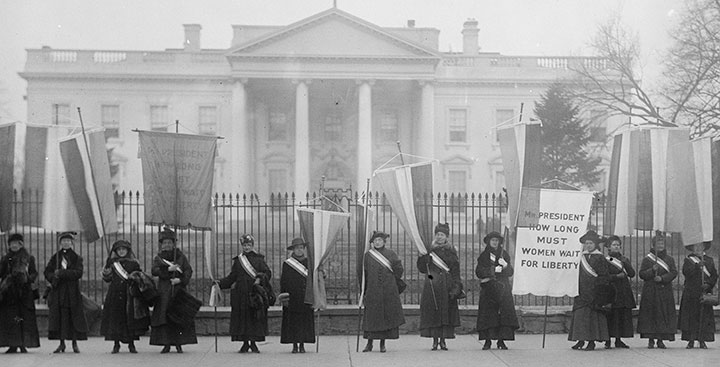It feels weird to start a blog post in any sort of “normal” way right now. Thanks to the pandemic, it’s hard to know what to say. It also feels weird to open this like the thousands of Covid-era emails we’ve all received this year, like so many parallel-universe pandemic Hallmark cards: “Hope you’re safe and well in these difficult times…”
But the terrible truth is, odds are that at least some of you reading this are not at all safe or well. Some of you may have been ill or hospitalized, or lost loved ones to the virus. Others of you may have lost a job (or your own small business) or you may be scrambling to make ends meet on reduced hours or a furloughed position. Still others of you are front-line essential workers: tending to patients, or serving customers in person, or dreading the start of a school year where parents and teachers have to make impossible choices and perform advanced risk-calculus daily. And at the same time, many of you may be members of a marginalized population—enduring the added risk and indignation and danger of being Black, Indigenous, trans, a person of color, or an immigrant in a nation careening full-tilt toward fascism, even more entrenched white supremacy and police brutality, and economic ruin. All while the global pandemic and rampant voter suppression target our marginalized friends and family in disproportionate numbers. Oh, and by the way, the administration is trying to kill the U.S. Postal Service while everyone’s just trying to send our rent check or a ballot by the deadline, or receive our benefits check or prescription medication in the mail, or run our thanks-to-Covid-mail-order-only businesses.
In other words… yeah. It’s a lot.
So where do any of us go from here? For Jessica and me, our work fuels us, and our collaboration sustains us. Working on the Dead Feminists series has kept us focused—and given us plenty to do. (Heaven knows there’s no shortage of issues to make broadsides about, right?)
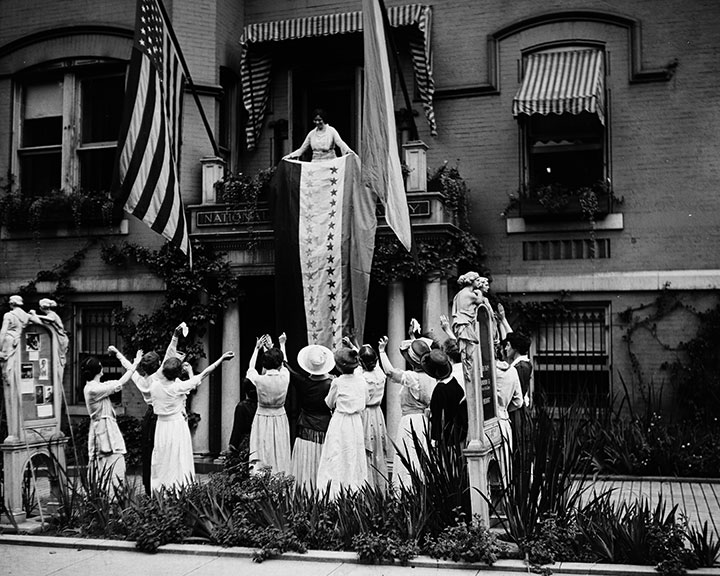
Above: Alice Paul unfurls the suffrage flag she sewed to celebrate the ratification of the 19th Amendment. She sewed each star onto the flag as each new state ratified the amendment, until the necessary total of 36 was reached. Image courtesy of the Library of Congress.
Despite every curve ball the world (and specifically America) has thrown at us, we still have reason to celebrate today. On this day 100 years ago, Tennessee became the 36th and final state to ratify the 19th Amendment to the U.S. Constitution, which extended the right to vote to women in the United States. The Amendment didn’t officially become law until August 26th, but we wanted to mark today’s milestone, as well. It took almost eighty years for the women’s suffrage movement to win the vote, but their cause excluded many, and their victory was incomplete. Today we are thinking about women all over America—many of whom, despite constitutional “equality,” still don’t have fully equal access to the ballot box. Voter suppression and other barriers to suffrage still threaten our democracy, and disproportionately affect Black, Indigenous, and other women of color—denying them the vote that the Constitution is specifically supposed to protect.
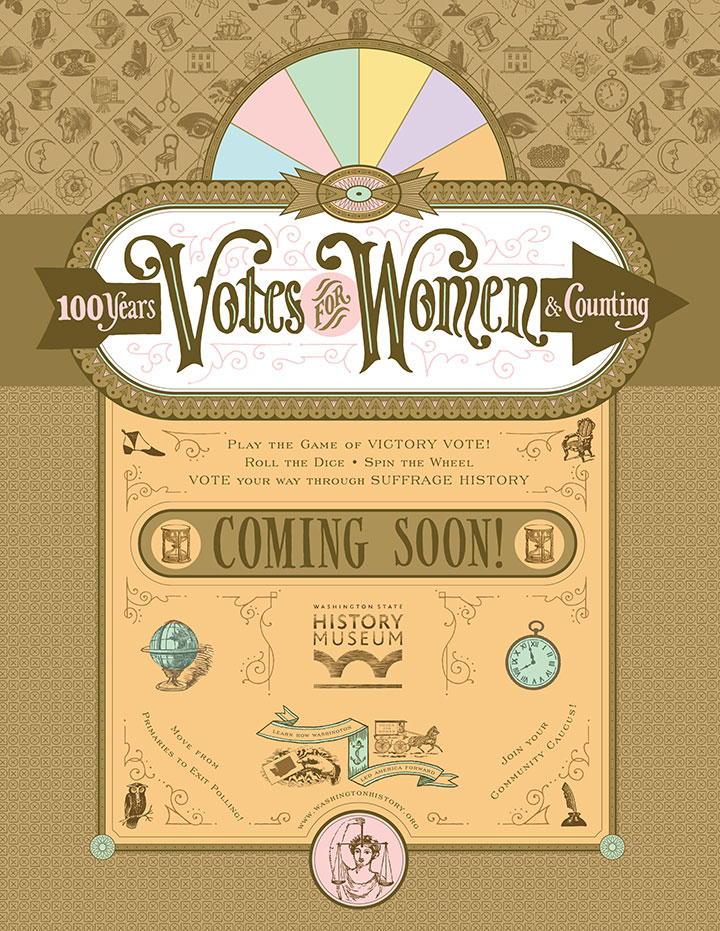
This historical and contemporary inequality has been on our minds for many months. Since last year we have been designing, writing, and curatingVotes for Women: 100 Years and Counting, the women’s suffrage centennial exhibition with the team at the Washington State History Museum (WSHM). Votes for Women traces the history of the women’s suffrage movement and the ongoing struggle for voting equality for all Americans—all in an interactive voting game for visitors. As events have unfolded in real time—from voter suppression to the possibility of the first woman serving as Vice President—we’re updating content accordingly.
Thanks to the COVID-19 global pandemic, WSHM has been closed to visitors since March, and the Votes for Women exhibit is postponed with run dates unknown. (As soon as the museum is safe to open again and we can confirm the dates, we’ll let you know. Even if reopening is a long time off, WSHM is committed to running the exhibit in full, one day, no matter what.)
In the meantime, we still have another important anniversary to commemorate. Next Wednesday, August 26, is Women’s Equality Day, and the 100th anniversary of the certification of the 19th Amendment. This is the day that women’s suffrage became officially legal in the United States, and we wanted to celebrate by giving you a taste of the museum show!
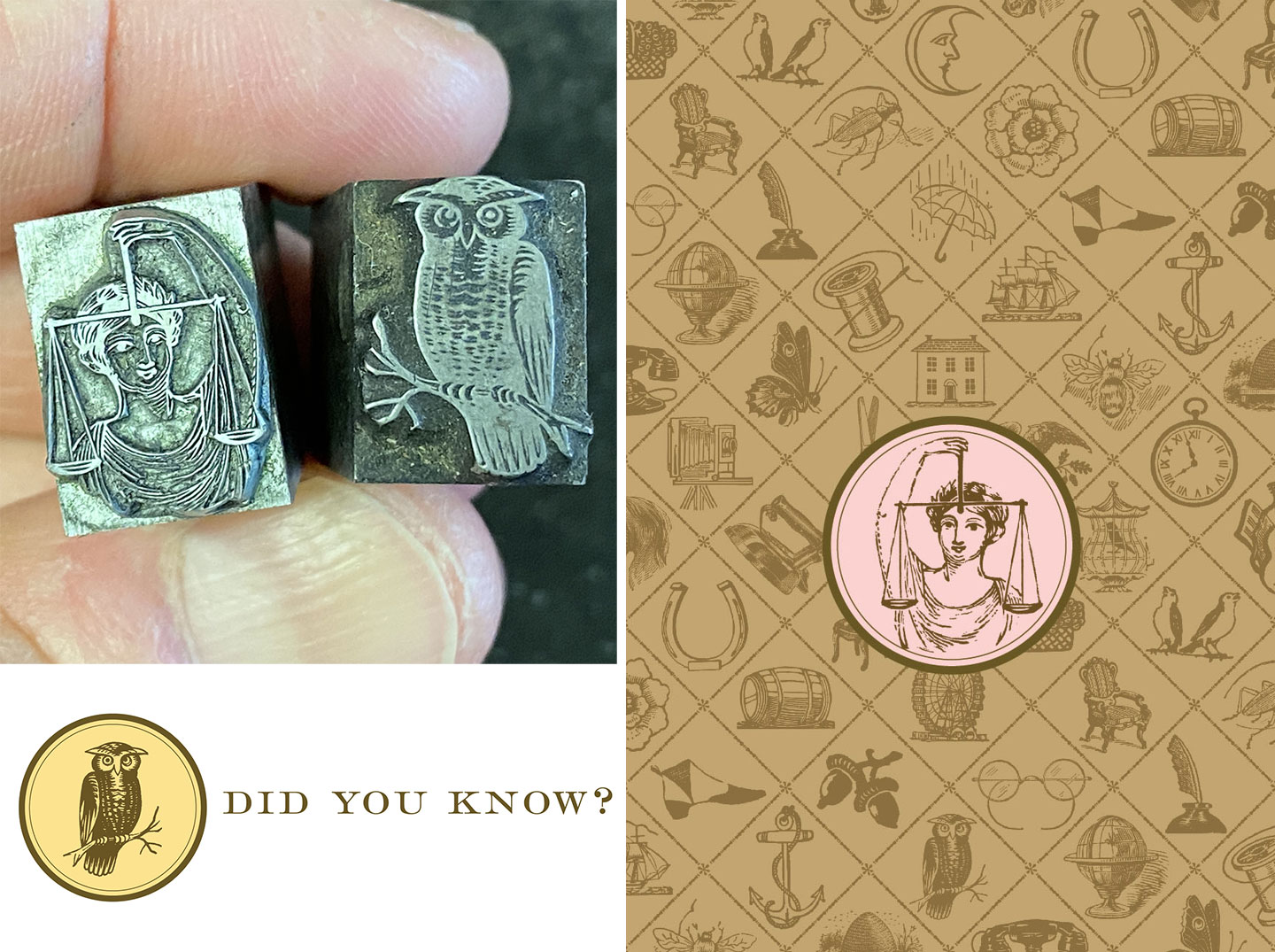
Join us for a conversation with WSHM staff on the development of the Votes for Women exhibition. You’ll get a look at the design of the exhibition (including the overall look we developed, based on Jessica’s collection of 19th-century metal cuts and ornaments), the premiere of our 30th Dead Feminists broadside, and a behind-the scenes look at the interactive game we created at the heart of the show.
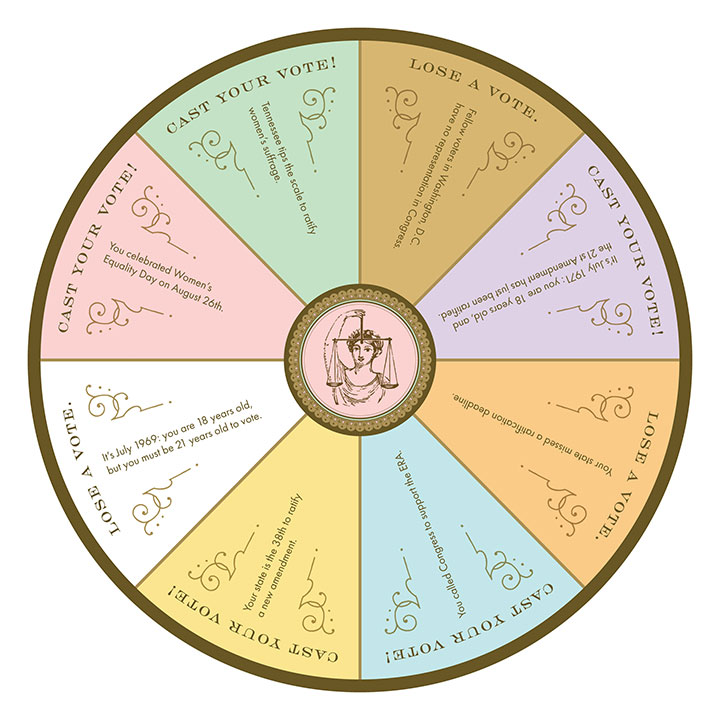
In Conversation: Dead Feminists and the Creation of
Votes for Women: 100 Years and Counting
Wednesday, August 26, 7-8:30 pm
Talk broadcast through Facebook Live
You can follow the Facebook Event at this link,
or access the video on the WSHM Facebook Videos Page once it goes live.
(Please note, the video won’t appear in the list of videos until the event actually starts, so you may have to refresh the page to see it, if you get there first!)
• • • • • • • • • • • • • • • • • • • • • • • • • • • • • • • • • • • • • • • • • • • • • • • • • • • • • • • •
Wherever this finds you, in whatever state of anger or worry or dread or even calm, please know that you are in our thoughts. We hope you are safe, and that the things you need are at your fingertips. And we hope that we can provide you with a small bit of entertainment and food for thought online in the coming week—even if we can’t see you in person right now. Many thanks for all your support.
